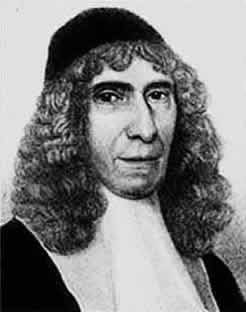 The Spirituality of John Owen
The Spirituality of John OwenJohn Owen is primarily known more for his theological acumen and polemical prowess more than his affectionate spirituality. Yet, as Packer notes, we are worse off for not knowing and modeling the deep and intense spirituality of this giant of the faith. Owen’s intellectual ability was unsurpassed at the time, but his spiritual stature perfectly matched his theological learning. There was no dichotomy in his life between his knowledge and his piety. He was a man of great humility who also fully recognized the power of the gospel of God.
Puritans, including Owen, recognized that self-knowledge was a key concept in Christian spirituality. First, Owen recognized that the Christian is a man created for an end which is the rational and emotional worship and knowledge of God. Man was made to know his creator and redeemer. Second, man is a fallen creature subject to all the constraints and deceptions of sin. Sin has alienated man from both God and himself. The root of sin is enmity with God and a complete disaffection and antipathy toward their creator. Christian living must therefore be founded upon self-distrust and self-abhorrence. Third, the Christian is thus a redeemed man. Christ died for the sins of the Christian. Since redemption by Christ is at the heart of Christian doctrine a proper response to that redemption is at the heart of Christian devotion. Fourth, the Christian man is a regenerate man who has been made a new creature through union with Christ. A new life has been granted to him. Yet, it is the very nature of regeneration which makes the heart of man into a battlefield. War is no waged against the new man and the old man. The fight is a lifelong war.
Sanctification is the goal of Christ in the life of the Christian while on this earth. God’s desires man’s holiness which is first a gift of God promised and also man’s duty required. There are two aspects to achieve this state of sanctification. First, there is vivification which is the growing and maturing of the new man through being fed on the feeding of the Word and the fellowship of the saints. Second, is mortification which is the killing and destroying of the old man. The Christian will not rest until the old man is destroyed which will only come through glorification. Therefore the Christian life is a continual battle of vivification and mortification, of building up the new man and laying low the old man.
All of this has the goal of communion with God. For the Puritans, “communion between God and man is the end to which both creation and redemption are the means; it is the goal to which both theology and preaching must ever point; it is the essence of true religion; it is, indeed, the definition of Christianity” (202). Owen’s understanding of communion with God may fall under five heads. First, communion with God is a relationship between God and man which is marked by true reciprocal fellowship between one another. Second, communion with God is where the initiative lies solely with God. God acted first and because he first loved us therefore we are able to respond back in love. Yet, God always takes the initiative.
Third, communion with God is Trinitarian in that the believer receives love and fellowship with all members of the Trinity. Such communion with God involves the entirety of all persons within the Godhead. Fourth, communion with God is a relation of active, forward-looking friendship between God and man. “Communion with God means simply behaving as a friend of the God who has called you his friend” (208). Fifth, communion has its outworking in a special and spiritual way at the Lord’s Table. The communicant receives a unique and special grace in fellowshipping with the Lord Jesus Christ as they partake of the elements. It is here where Christ’s ultimate act of love is set in full force before the Christian to behold and adore.
In application three things must be recognized. First, the Puritans saw communion with God as a high and holy thing which today is seen as a small thing at best and an insignificant thing at worse. Christians today just do not see the absolute importance of communing in an intimate relationship with their creator and redeemer. Second, the piety of the Puritans was extremely God-centered in contrast to our artificial and boastful worship which carries on today. Third, the Puritans passion and integrity in worship has no equal in worship and spirituality today. They are unequalled in their spiritual passion and theological knowledge.
Check out JohnOwen.org


No comments:
Post a Comment